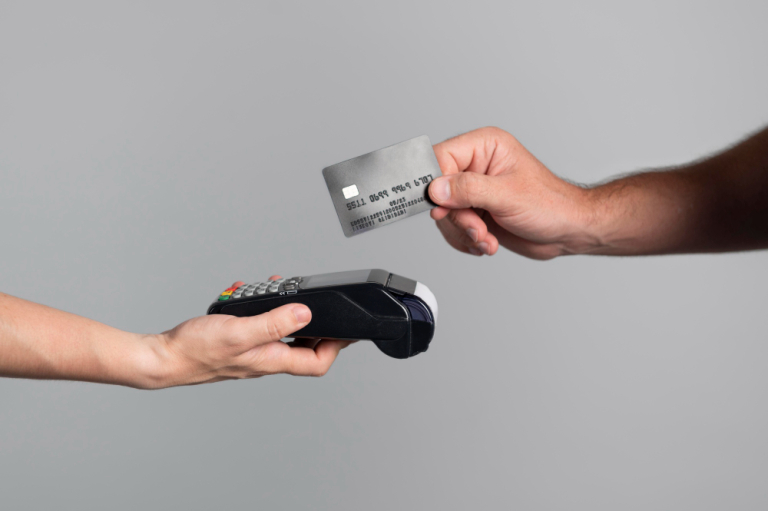
Adverts
If used responsibly, credit cards can be a useful financial tool. They can help build your credit score and offer rewards. They can also be an easy way to track spending.
A credit card is a powerful financial tool that has the potential to make everyday life easier and offer countless advantages.
Adverts
However, if used recklessly, it can become a financial trap, resulting in mounting debts and financial stress. To avoid these problems, it is essential to learn how to use your credit card consciously.
In this modern era, credit cards have become an essential part of our lifestyle, offering convenience, flexibility and security in financial transactions. However, the ease of payment they offer can lead to impulsive and uncontrolled spending, resulting in unnecessary debt.
Using a credit card consciously means understanding how it works, being aware of the expenses incurred, setting financial limits and adopting a responsible approach to managing personal finances.
Adverts
By doing so, we can reap the benefits of a credit card, such as accumulating points or miles, accessing additional insurance and protections, and building a good credit history.
However, if used incorrectly, they can be a source of debt. To avoid falling into that trap, here are some tips on how to use your credit card wisely:
A credit card can be a great tool if you use it responsibly, paying off your balance each month. It can help boost your credit score, and some cards offer rewards or 0% interest for a short period of time on certain purchases. However, many people fail to control their spending and end up with debt they cannot pay.
When you have multiple debts, it's important to pay off your balance as soon as possible to avoid excessive interest rates and fees. It's also a good idea to avoid late payments, which can have a negative impact on your credit score and could result in additional fees and penalties.
The best way to do this is to focus on the most expensive debt first. After paying off the debt with the highest interest rate, start paying off the other balances. This will help you save money in the long run as you won't have to pay as much in interest. Additionally, it's also a good idea to build an emergency savings fund of at least three months of income.
Credit cards can be an extremely useful financial tool if used correctly, but it's important to know how and when to use them. Using them responsibly will help you build credit, earn rewards, and access benefits like emergency cash. But, if you're not careful, they can also be a big money pit.
It's important to only charge your card for things that you would buy if you had to pay with cash. That way you are only buying what you can afford and can avoid falling into the debt trap that is plaguing thousands of Americans.
This will help you maintain a good credit score and avoid late payments, which can hurt your score.
try to set up Payment due reminders through your card issuer or on your phone, so you never miss a payment.
You can even set up automatic payments from your bank account to make sure you're always on track with your payments.
These tips will give you the confidence and control to use your credit cards wisely.
A credit card is a complex financial product that can help you build your credit score or hurt you financially if used irresponsibly. It's important to familiarize yourself with your card's terms and conditions so that you can be more aware of its pitfalls and benefits.
Your credit card company provides your card terms and conditions when you apply for it or when it is issued. These terms may include elements such as the card's overall effective annual fee, balance transfer fees and maximum credit limit.
You can also find information on how to redeem your points, miles or cash back accumulated on your card in the card's terms and conditions.
It is also important to know the bank's billing cycle so that you can plan your expenses and payments accordingly. A billing cycle is the fixed period of time that a bank statement is sent to its cardholders each month.
Credit cards can be a great tool to help you manage your finances, but they can also backfire if you overspend. This can lead to high balances that damage your credit score and make it difficult to pay off debt.
The best way to avoid overspending is to use a budgeting app, leave your card at home when you go shopping, and limit how much you spend each month. Some people even freeze their card so that it cannot be used..
However, these rewards are worth it if you pay off your balance in full each month. Otherwise, the interest charges you will incur will offset any rewards amount.
If you struggle with overspending, it might be a good idea to talk to a financial therapist. They can help you identify your triggers and develop a plan to stop them. You can find a therapist in your area using the Financial Therapy Association directory.
Whether you use an online tracking app or simply keep a journal, it's important to record your expenses consistently. This will help you identify your problem money habits and find areas where you can cut back. For example, you might spend a lot on luxuries or impulse purchases that you really can't afford.
Adverts